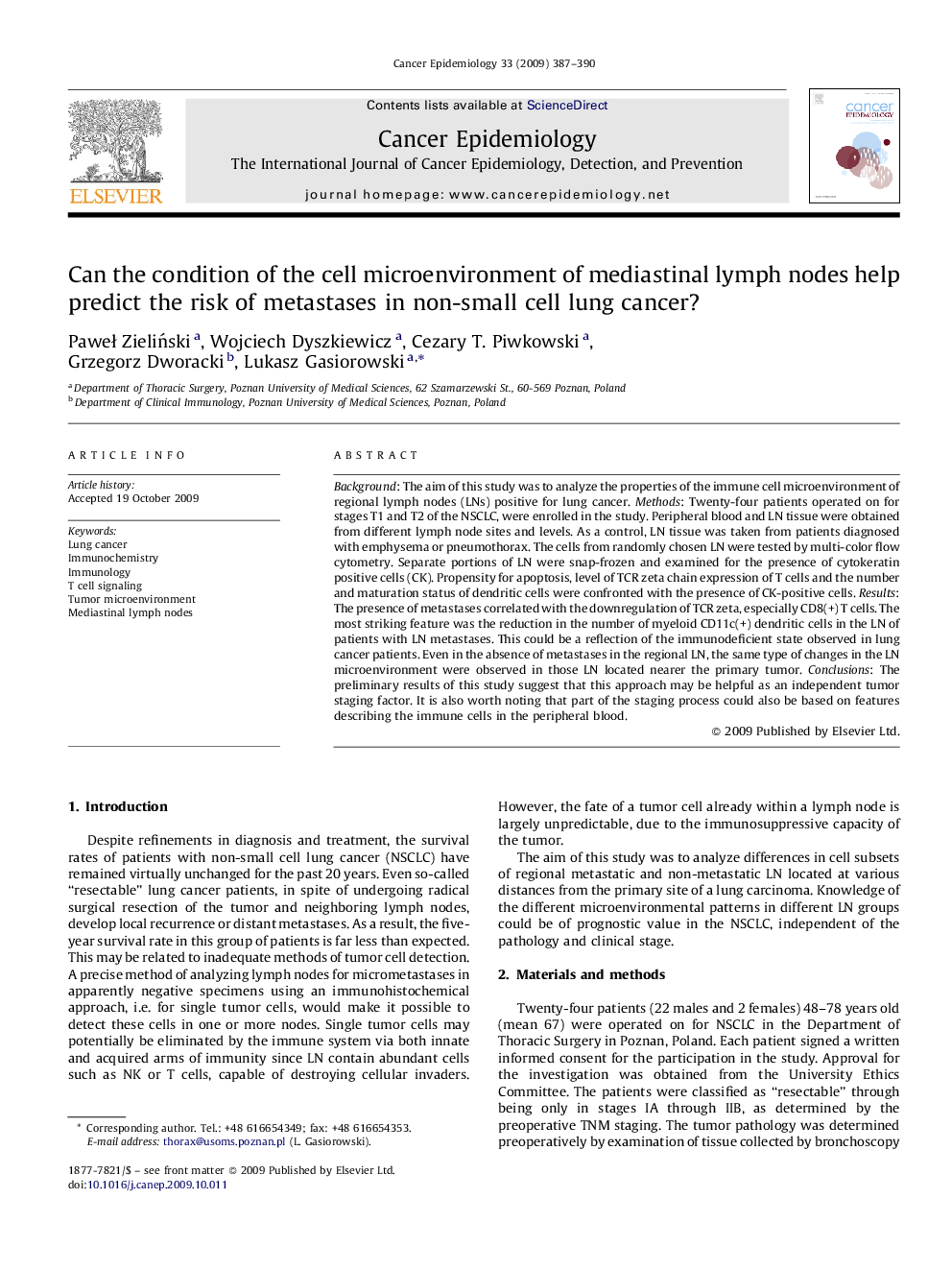| Article ID | Journal | Published Year | Pages | File Type |
|---|---|---|---|---|
| 2109602 | Cancer Epidemiology | 2009 | 4 Pages |
Background: The aim of this study was to analyze the properties of the immune cell microenvironment of regional lymph nodes (LNs) positive for lung cancer. Methods: Twenty-four patients operated on for stages T1 and T2 of the NSCLC, were enrolled in the study. Peripheral blood and LN tissue were obtained from different lymph node sites and levels. As a control, LN tissue was taken from patients diagnosed with emphysema or pneumothorax. The cells from randomly chosen LN were tested by multi-color flow cytometry. Separate portions of LN were snap-frozen and examined for the presence of cytokeratin positive cells (CK). Propensity for apoptosis, level of TCR zeta chain expression of T cells and the number and maturation status of dendritic cells were confronted with the presence of CK-positive cells. Results: The presence of metastases correlated with the downregulation of TCR zeta, especially CD8(+) T cells. The most striking feature was the reduction in the number of myeloid CD11c(+) dendritic cells in the LN of patients with LN metastases. This could be a reflection of the immunodeficient state observed in lung cancer patients. Even in the absence of metastases in the regional LN, the same type of changes in the LN microenvironment were observed in those LN located nearer the primary tumor. Conclusions: The preliminary results of this study suggest that this approach may be helpful as an independent tumor staging factor. It is also worth noting that part of the staging process could also be based on features describing the immune cells in the peripheral blood.
